Welcome to Biliana Cicin-Sain’s Celebration of Life and Legacy





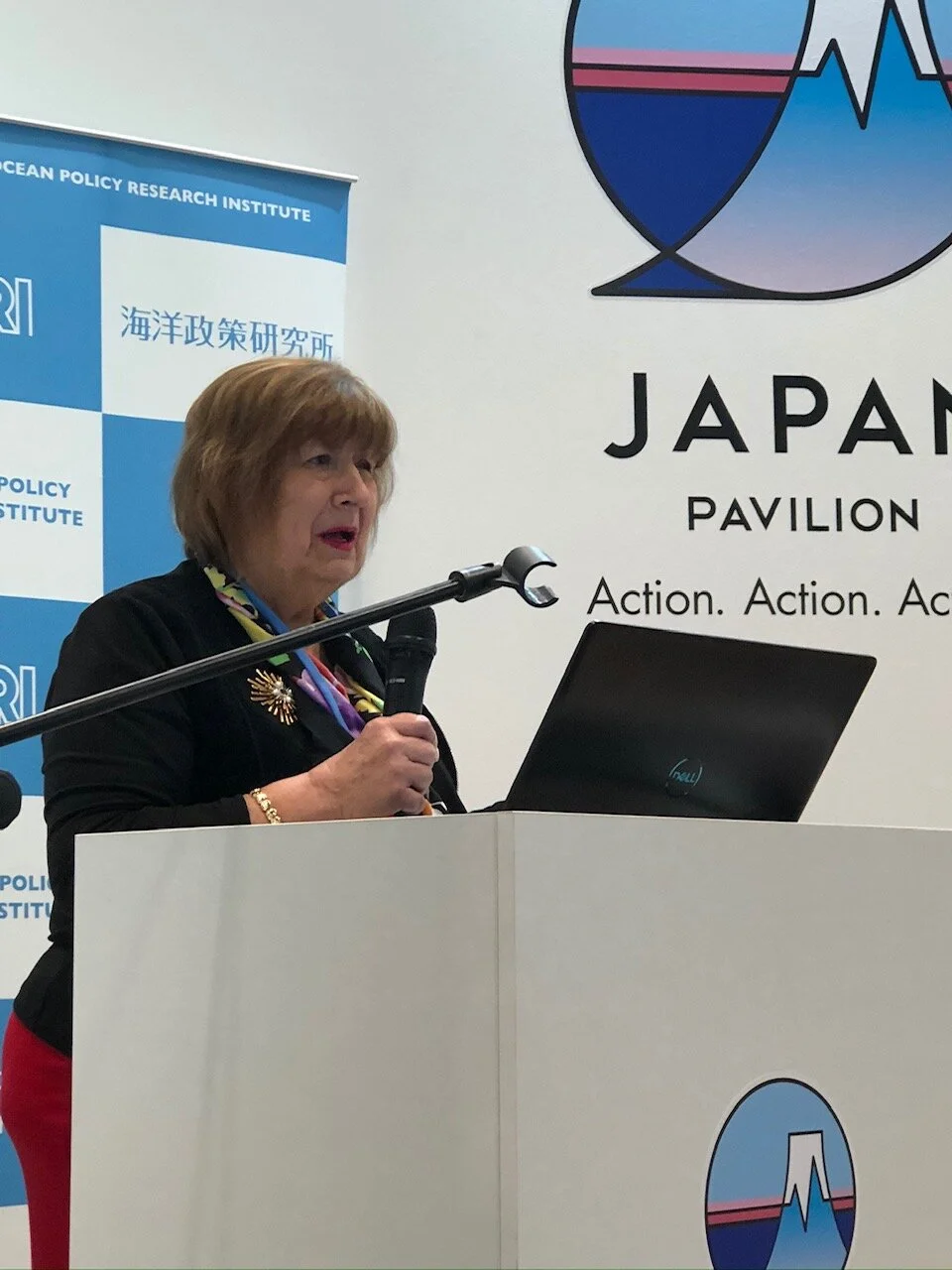
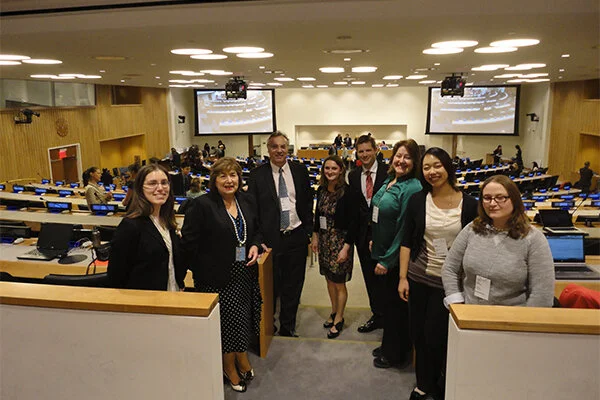
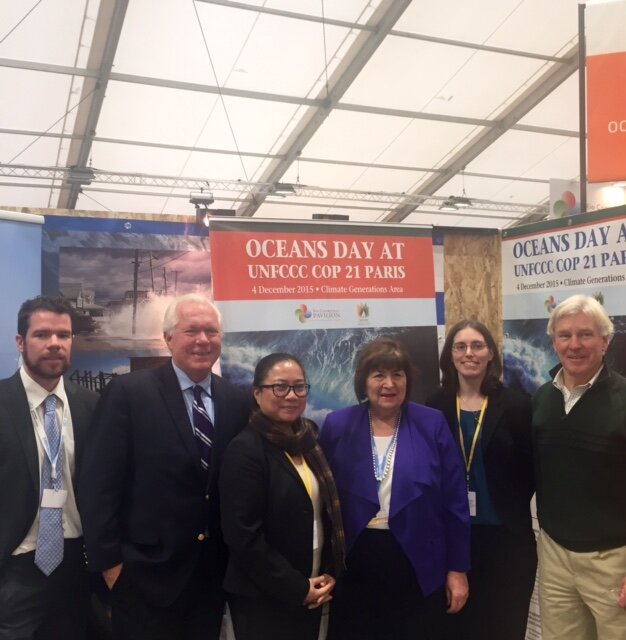





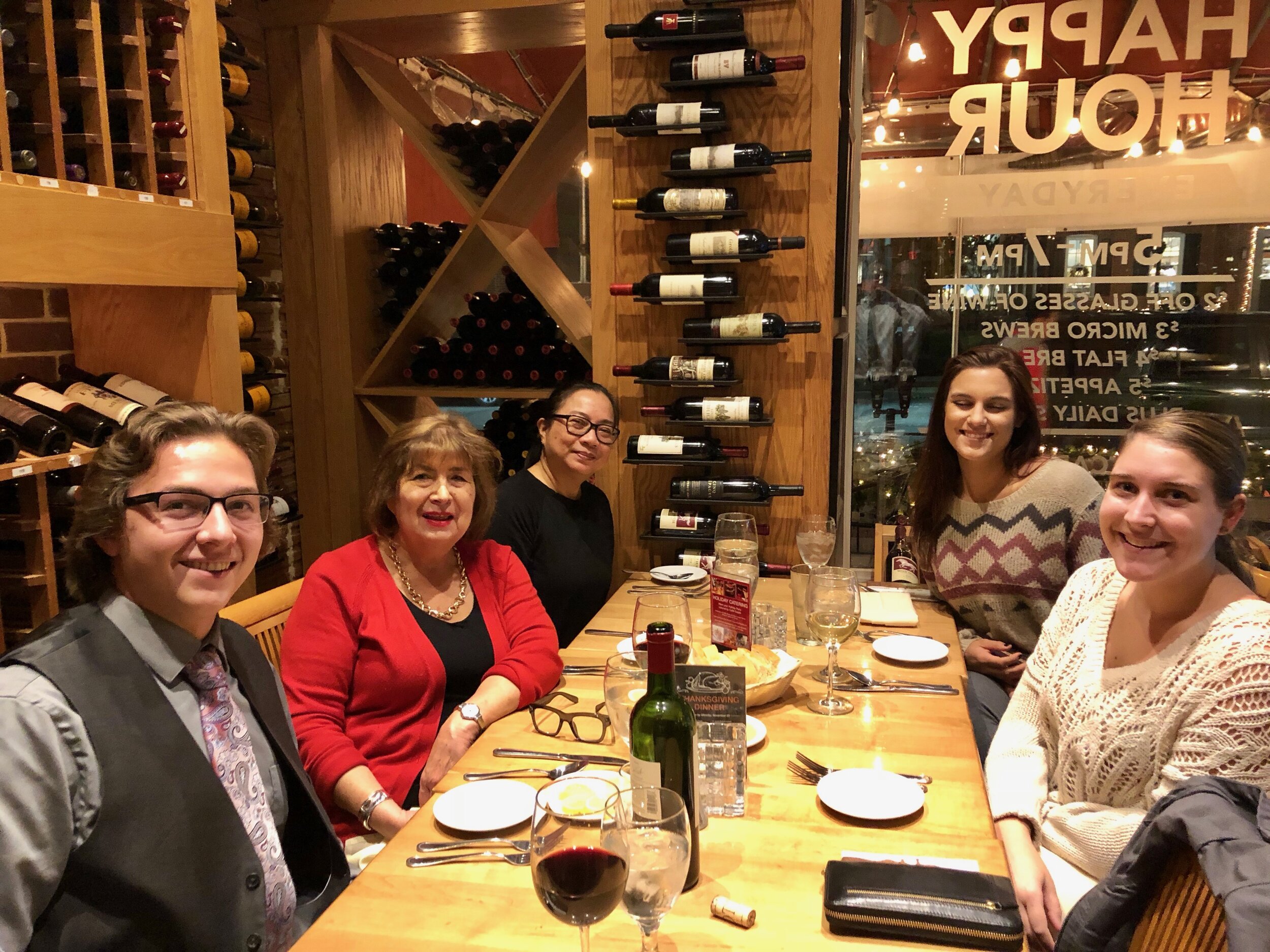

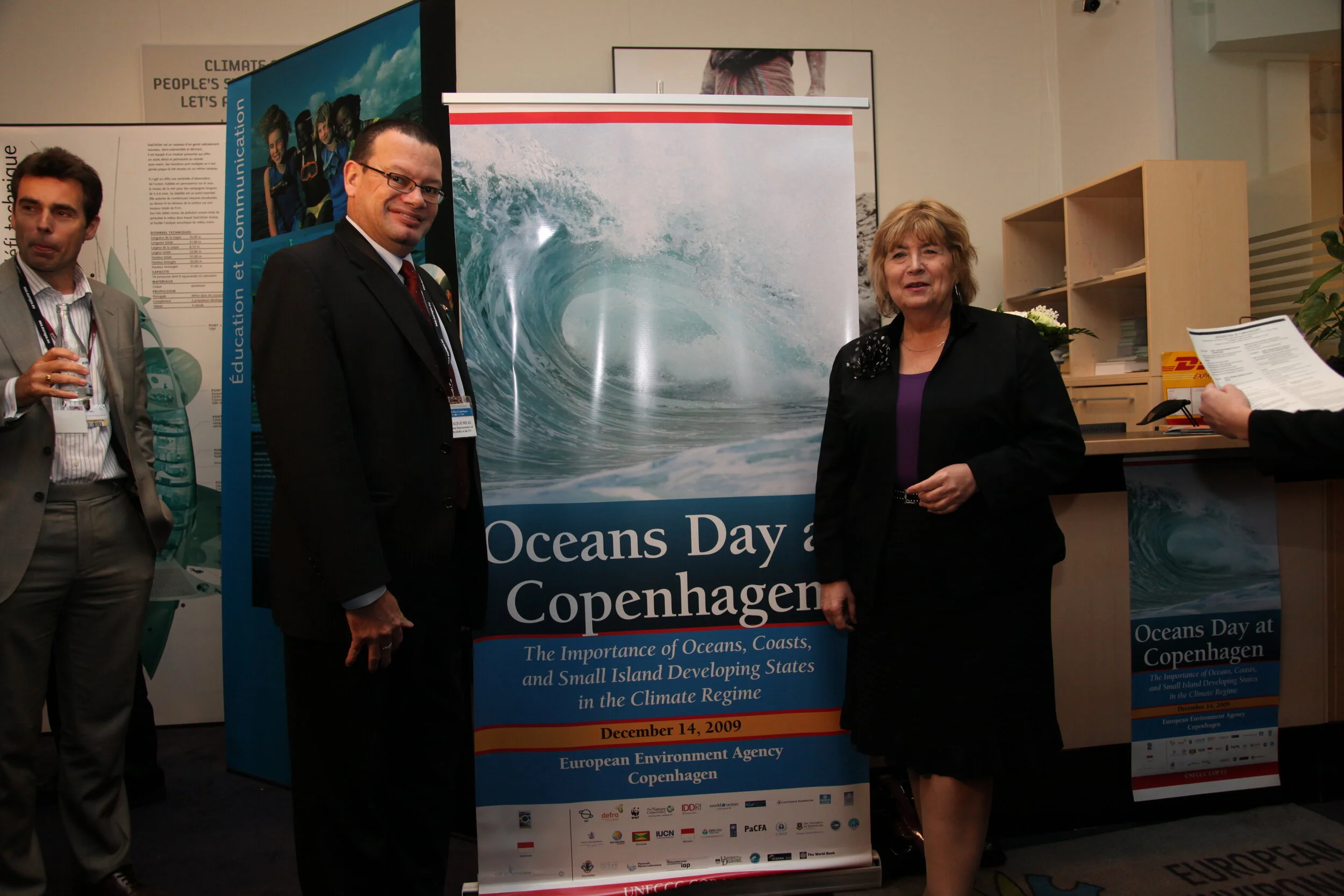
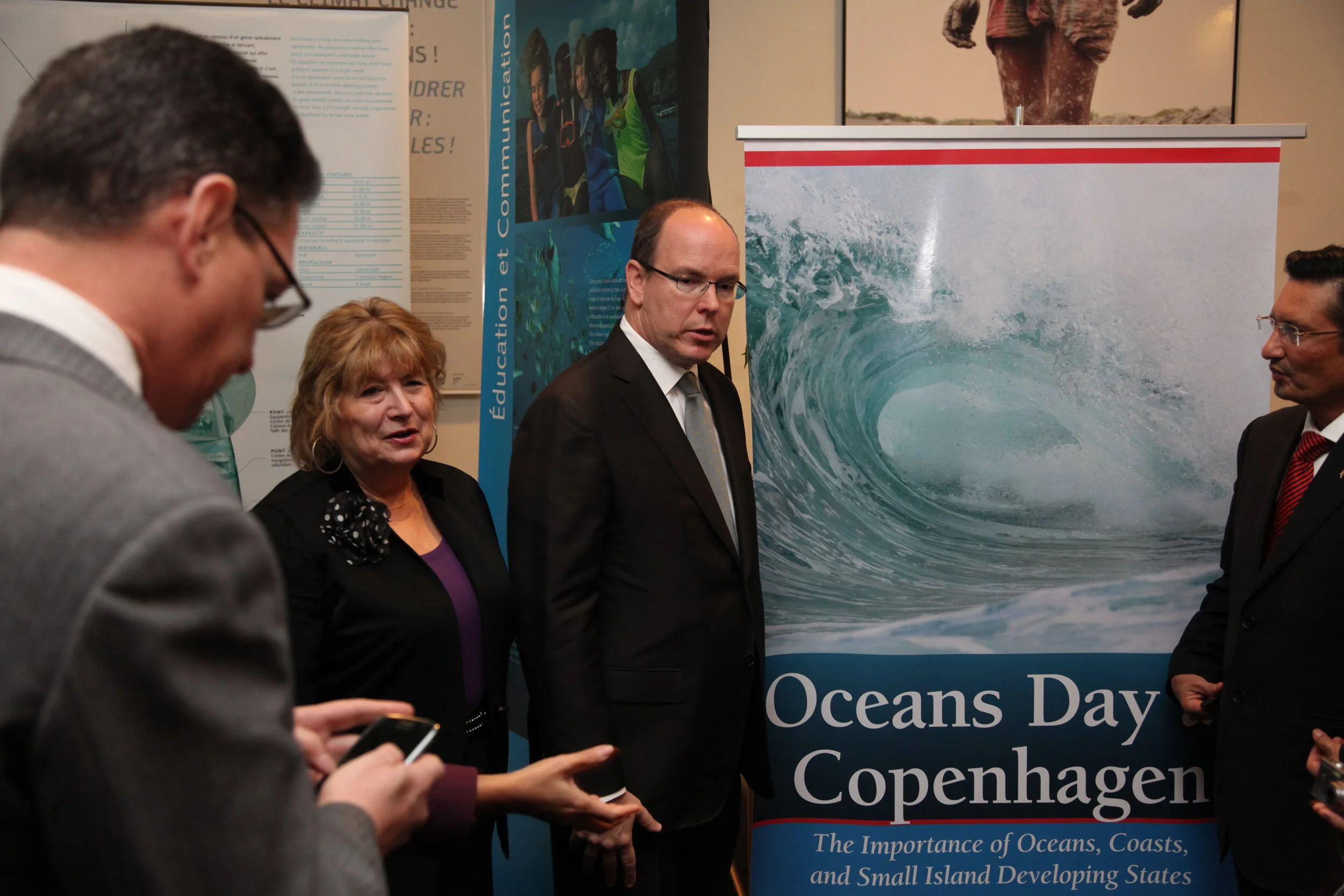
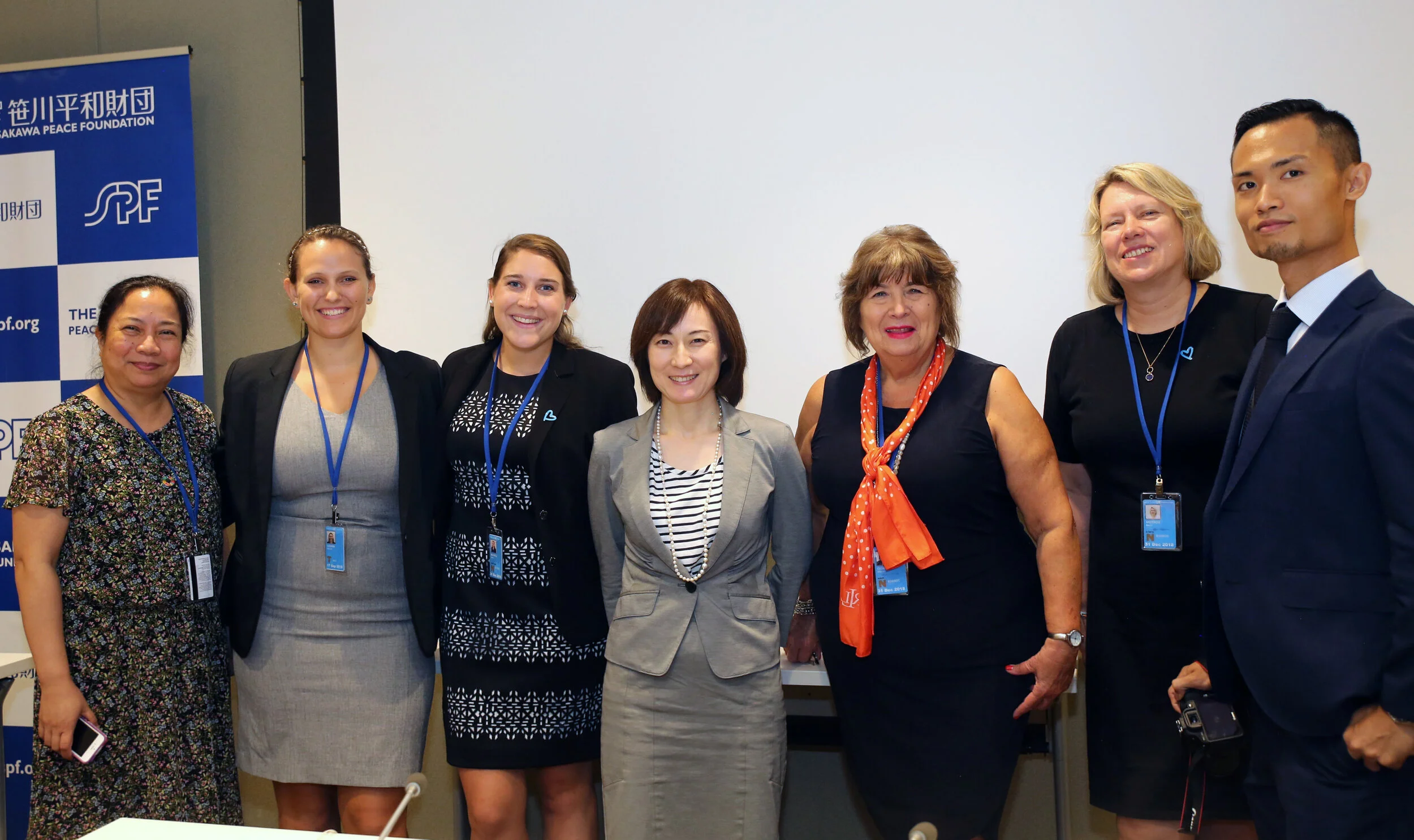
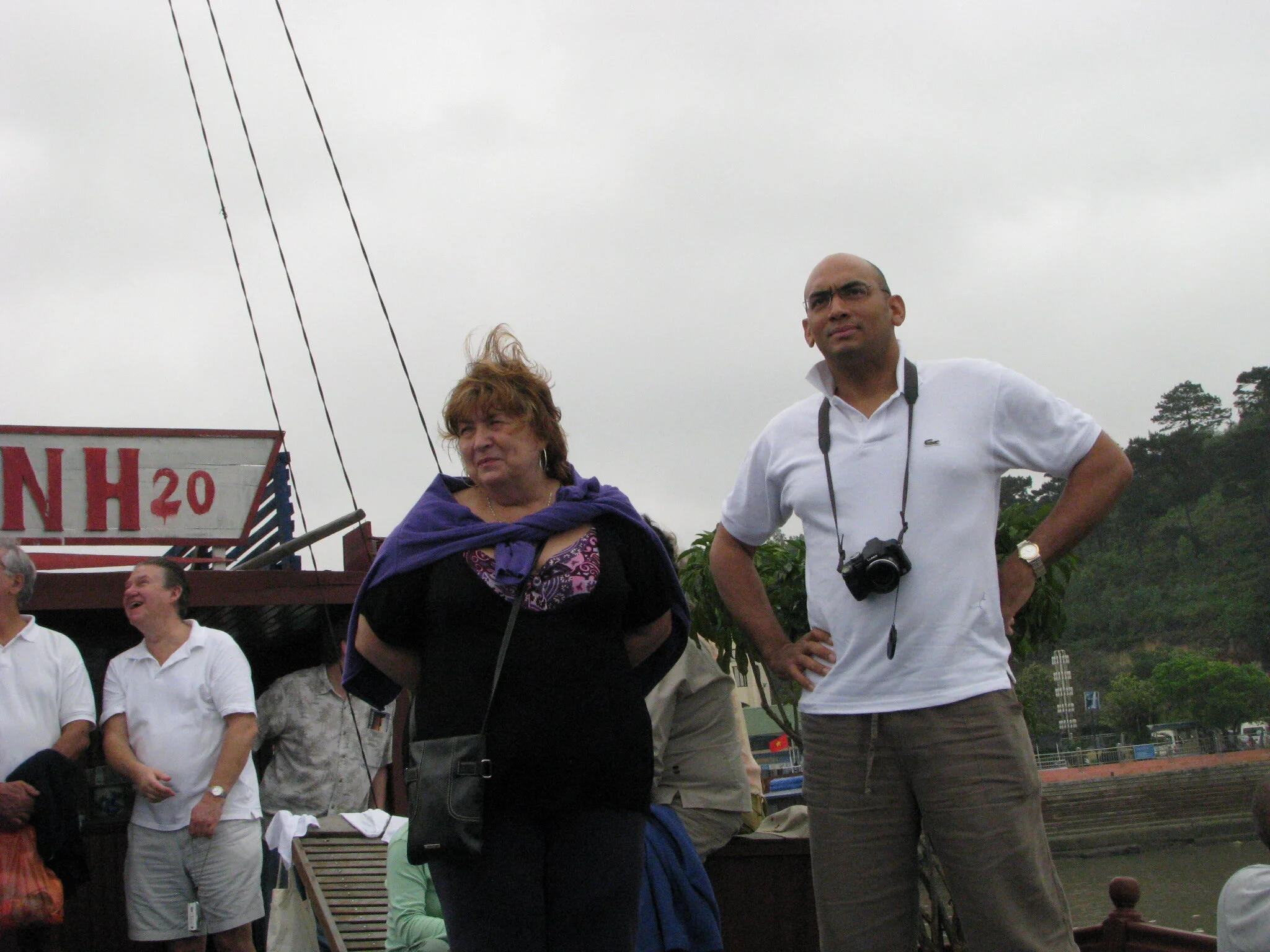

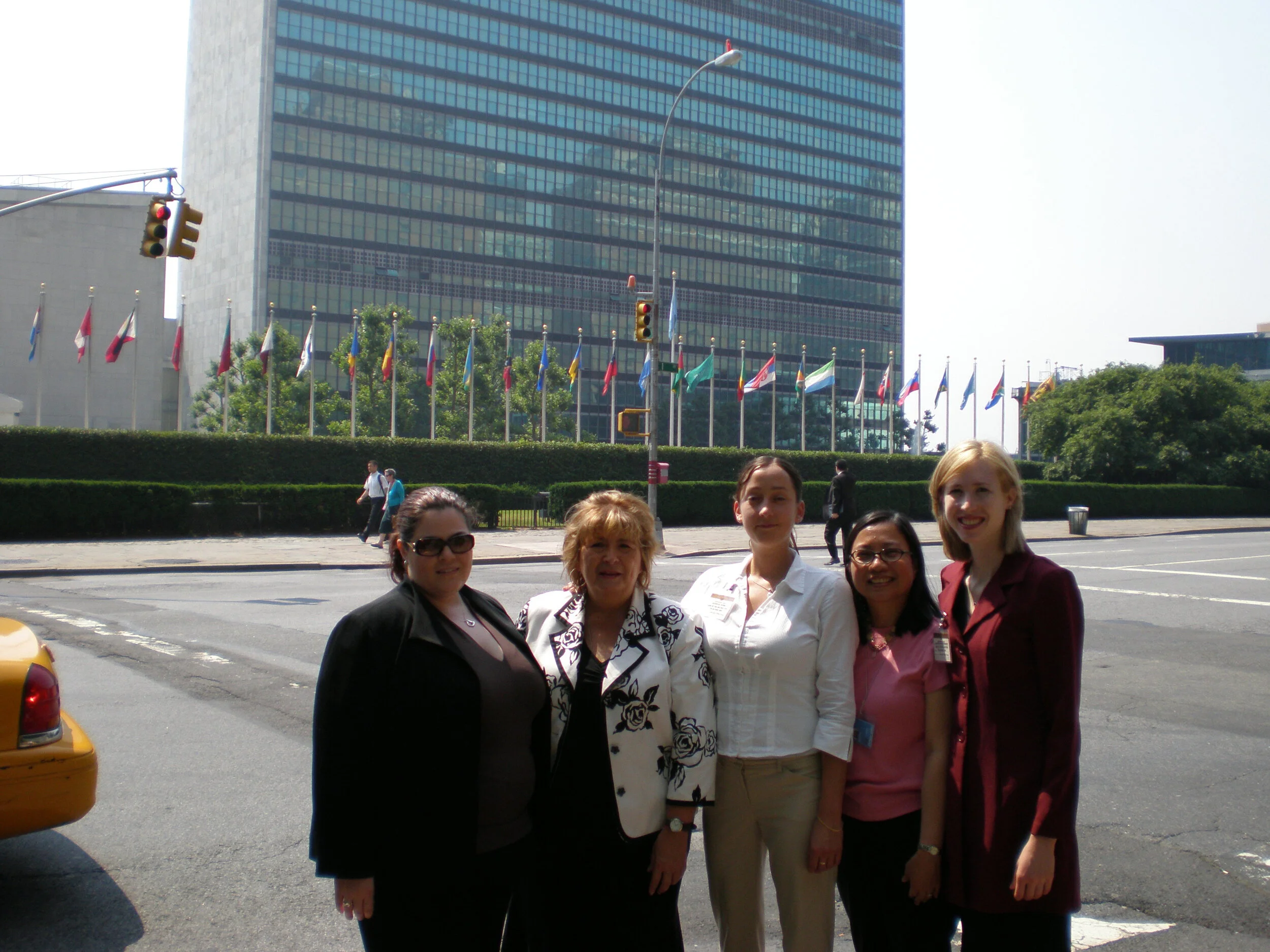

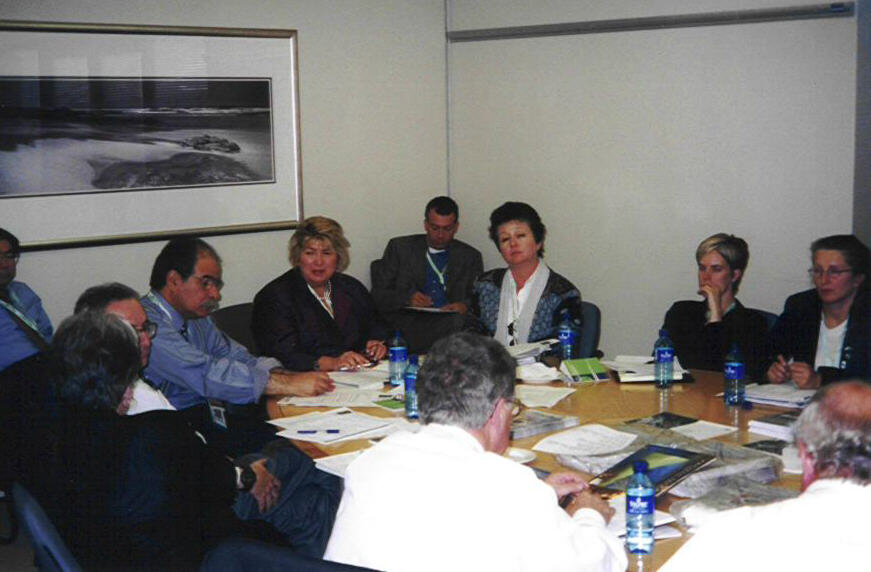





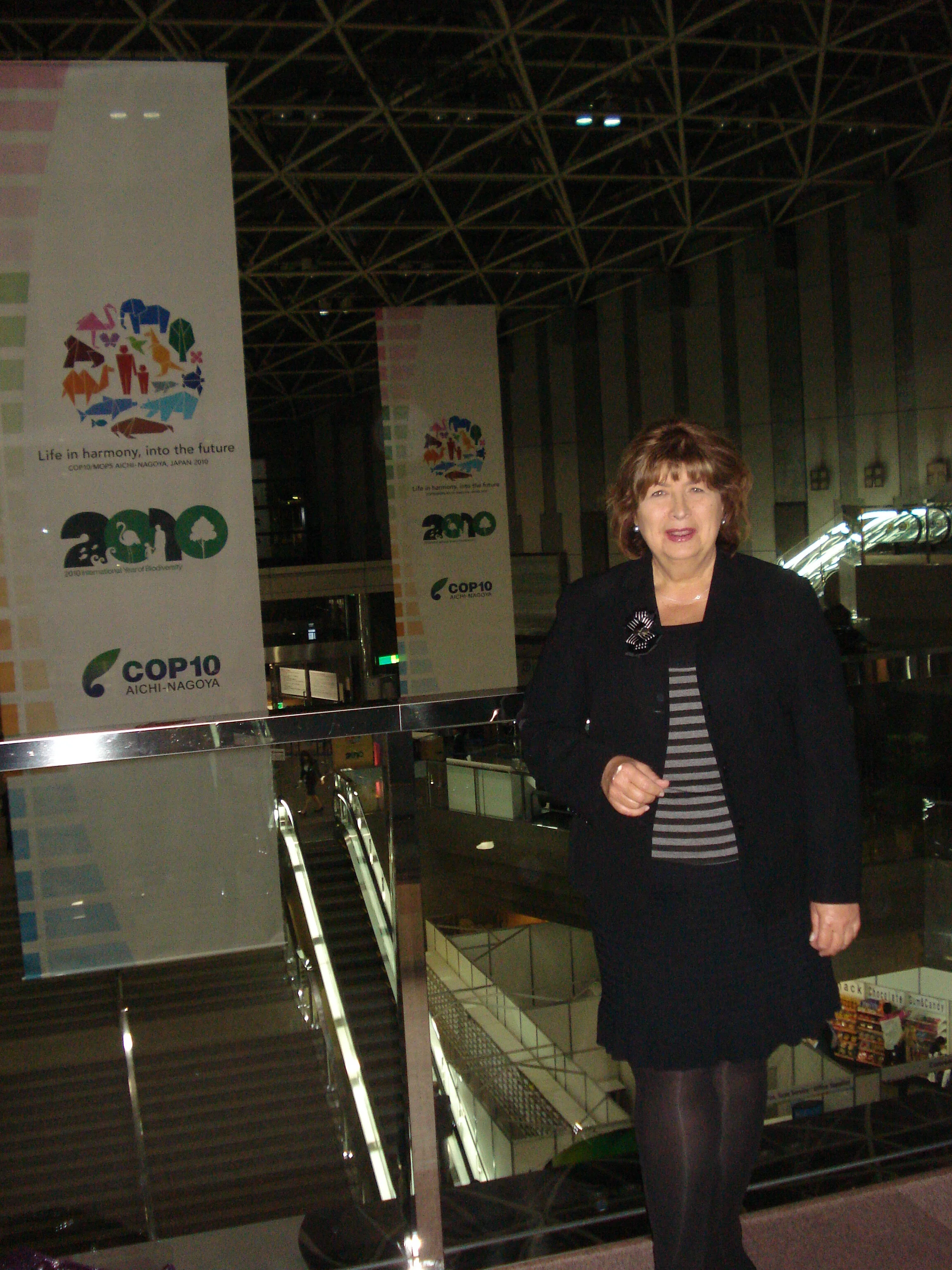

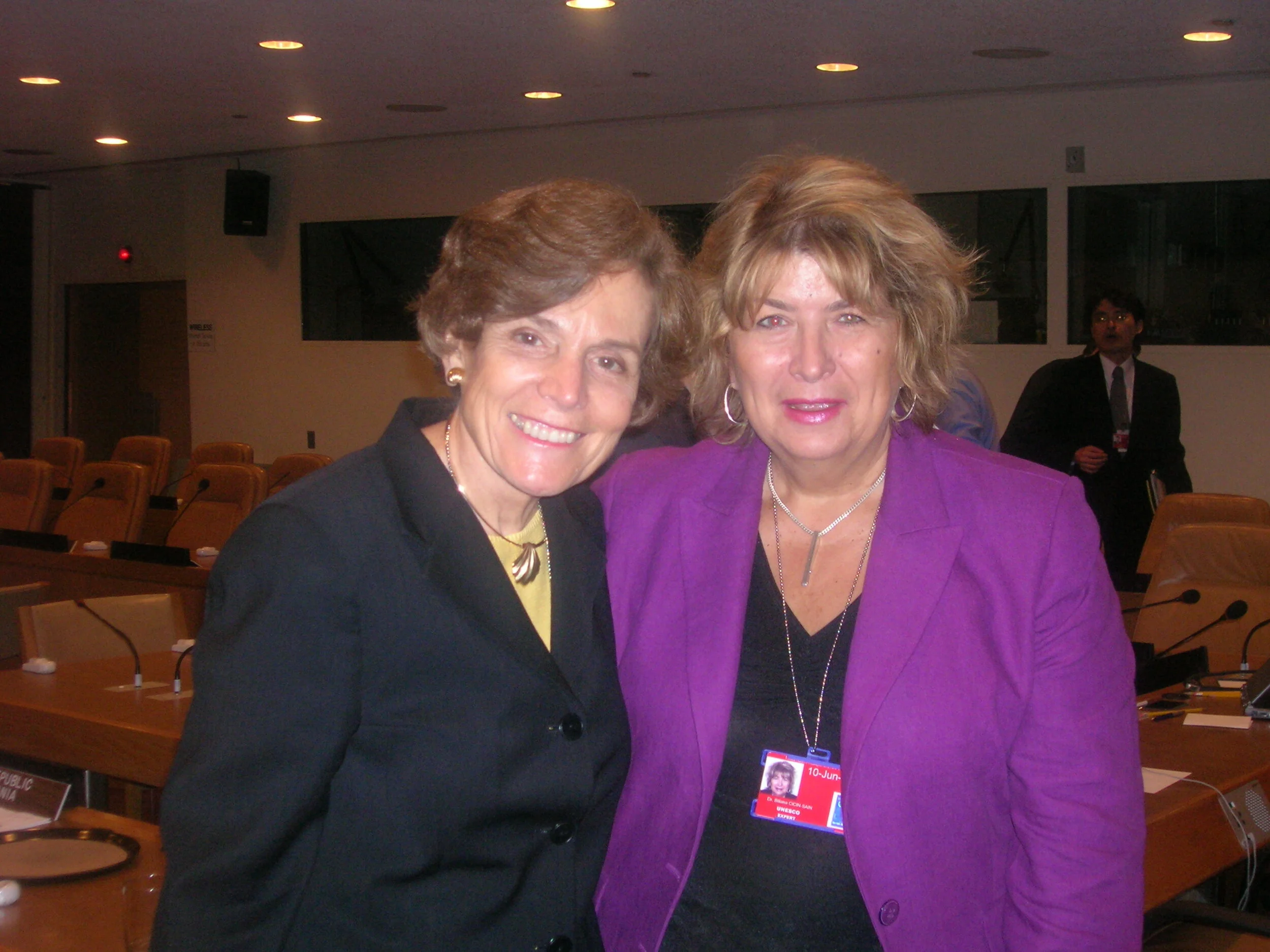
















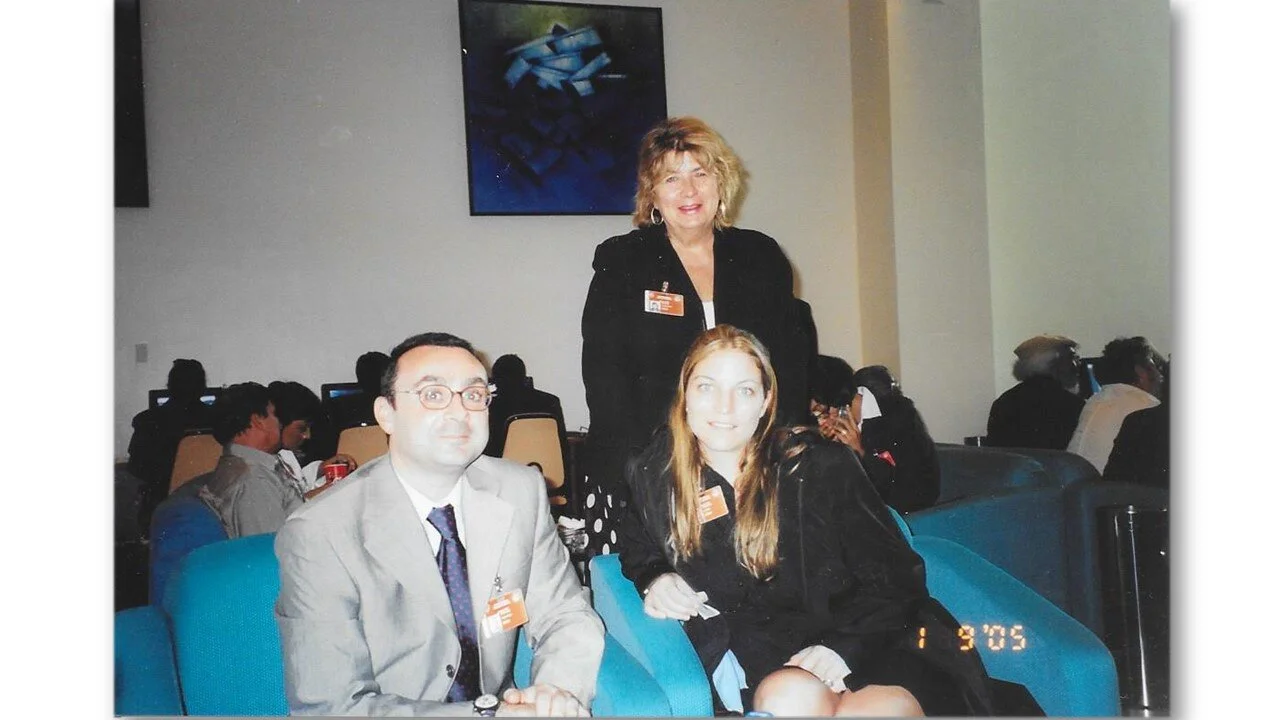
Biliana Cicin-Sain: A People and Oceans Journey
In 2007, Dr. Cicin-Sain was awarded the Elisabeth-Mann-Borgese Meerespreis (“Prize of the Sea”) by the Ministry of Science, Economics and Transport of the Land Schleswig-Holstein in Germany. The Honorary Prize is awarded to prominent personalities that advocate the protection and preservation of the sea in politics and society. The Meerespreis Jury cited Professor Cicin-Sain’s “political and scientific engagement for an ecosystem-based integrated management of the oceans [which] has been instrumental in promoting a responsible and sustainable use of marine environment within the international public.”
Biliana’s Professional Legacy
Dr. Biliana Cicin-Sain (PhD in political science, UCLA, postdoctoral training, Harvard University) was the Director of the Gerard J. Mangone Center for Marine Policy and Professor of Marine Policy at the University of Delaware’s College of Earth, Ocean, and Environment with a joint appointment in the Center for Energy and Environmental Policy. She was the Editor-in-Chief of the international journal, Ocean & Coastal Management. She was a world leader in the field of integrated coastal and ocean governance and forged international collaboration among all sectors of the international oceans community to advance the global oceans agenda.
Dr. Cicin-Sain was one of the co-founders, together with her late husband Robert Knecht, of the integrated coastal management approach, thanks to which we now enjoy more sustainable coastal zones around the world. It is thanks to Dr. Cicin-Sain's efforts that the first ever Earth Summit in Rio de Janeiro in 1992 could see all kinds of stakeholders participate in the design of a chapter dedicated to sustainable development in the ocean. Dr. Cicin-Sain was the Founder and President of the Global Ocean Forum, initially mobilized in 2001 to place issues related to oceans, coasts, and island states on the agenda of the 2002 World Summit on Sustainable Development (WSSD) and to agree on a detailed set of global ocean targets and timelines. Since 2001, the Global Ocean Forum has brought together ocean leaders from governments, nongovernmental organizations, UN agencies, the private sector, and scientific institutions from 110 countries to promote the implementation of international ocean agreements, analyze emerging policy issues, and advance international consensus on unresolved ocean issues. The GOF fosters cross-sectoral dialogue on ocean issues; is a constant advocate for oceans at the highest political levels; and emphasizes the imperative of taking an ecosystem-based integrated approach to ocean governance at national, regional, and global levels. The GOF has carried out numerous policy analyses, especially focusing on the extent of implementation of global commitments on oceans; organized 10 global ocean conferences; and carried out multi- stakeholder policy dialogues on current and emerging global ocean issues. Central to the heart of the GOF’s mission is the nexus of oceans and people issues, especially the challenges of developing countries and small island developing States (SIDS).
With Biliana’s farseeing direction, the Global Ocean Forum fostered some of the first cross-sectoral dialogue on the issue of areas beyond national jurisdiction (ABNJ), and continues to foster discussion and analysis on current developments as well as build capacity among various actors in this issue area. The GOF is actively involved in a supportive role as part of civil society, in the Intergovernmental Conference on an international legally binding instrument under the United Nations Convention on the Law of the Sea on the conservation and sustainable use of marine biological diversity of areas beyond national jurisdiction (BBNJ).
Dr. Cicin-Sain has served as a policy advisor to many international organizations including UNESCO’s Intergovernmental Oceanographic Commission, World Bank, UN Environment Programme, Inter-American Development Bank; national governments including the Governments of Albania, Canada, Colombia, Ecuador, Indonesia, R.O. Korea, United States, Vietnam; and U.S. coastal states and counties. Since 1991, she frequently participated in United Nations negotiations on oceans and coasts, especially in the 1992 Earth Summit, the 2002 WSSD, the 2012 Rio+20 summit, the post 2015 development agenda, in annual UN negotiations on oceans, and in the negotiations related to marine areas beyond national jurisdiction. Since 2009, she played a prominent role in bringing the oceans issues into the global climate negotiations in the context of the UN Framework Convention on Climate Change and into the biodiversity negotiations in the context of the Convention on Biological Diversity.
Among her advisory appointments, Dr. Cicin-Sain served on various boards of the U.S. National Research Council (National Academy of Sciences and National Academy of Engineering), including the Marine Board and the Ocean Studies Board; on the Department of Interior’s Scientific Committee on the Outer Continental Shelf; as a senior policy advisor in the International Program Office of the US National Oceanic and Atmospheric Administration (NOAA); as a scientific advisor to the U.S. Commission on Ocean Policy and to the Joint Ocean Commission Initiative; as an advisor to the Independent Oceans Commission, Portugal; as an advisor to the Ocean Policy Research Foundation in Japan; on the Academic Committee of Xiamen University in China; and as a Visiting Professor of Marine Policy at the United Nations University-Institute of Advanced Study in Tokyo.
Dr. Cicin-Sain was the author of over 100 publications in marine policy, with an emphasis on cross-cutting issues related to integrated ocean and coastal governance. Her 1998 book, Integrated Coastal and Ocean Management: Concepts and Practices has been used in academic and governmental training efforts around the world. Her 2000 book, The Future of U.S. Ocean Policy: Choices for the New Century, which has been called “…the ultimate guide to the emerging debate on U.S. ocean governance,” presented a blueprint for national ocean policy reform in the United States. Her co-edited volume, The Routledge Handbook on National and Regional Ocean Policies (2015) brings together analyses of the experiences of 15 nations and 4 regions of the world which have taken concrete steps toward cross-cutting integrated oceans governance.
Dr. Cicin-Sain was named the 2010 Laureate for the Elizabeth Haub Award for Environmental Diplomacy in recognition of her “outstanding contributions to the international efforts to preserve the world’s oceans and the several international agreements relating to them.” Given annually since 1997 by the International Council of Environmental Law and Pace University School of Law, the Elizabeth Haub Award is awarded to key diplomatic figures that have made a significant contribution to the advancement of international law and policy.
Her international work has also been recognized through a number of other awards including: in 2019, the Prince Albert I of Monaco Grand Prize of Marine Sciences; in 2018, the Pioneer of the High Seas, French National Sea Center; in 2017, Dr. Cicin-Sain was awarded the Champion of the Ocean Award from the Urban Coast Institute, Monmouth University in the US. In 2010, Dr. Cicin-Sain was awarded an honorary doctorate in maritime law by the Korea Maritime University. In 2007, Dr. Cicin-Sain was awarded the Elisabeth-Mann-Borgese Meerespreis (“Prize of the Sea”) by the Ministry of Science, Economics and Transport of the Land Schleswig-Holstein in Germany. In 2007, Dr. Cicin-Sain was also awarded the Coastal Zone Foundation Award for leadership in coastal management, and in 2002, she was awarded the Ocean and Coastal Stewardship Award at the California and the World Ocean Conference together with the late Robert W. Knecht, her husband and co-author, first director of the US Coastal Zone Management Program.
Earlier in her career, Dr. Cicin-Sain served in two US federal agencies: NOAA and the Department of Housing and Urban Development; was a Professor of political science at the University of California, Santa Barbara (UCSB); Founder and Director of UCSB’s Ocean and Coastal Policy Center; and a Researcher at the Woods Hole Oceanographic Institution, the Intergovernmental Oceanographic Commission, and at the East-West Center in Hawaii.
Thanks to Biliana’s efforts, the recognition of the role of the ocean in climate regulation, people's livelihoods and countries' economies, have continued to grow. Her stewardship and role of custodian of the world ocean has always been based on strong science matched with the best aspirations of people. Biliana leaves a legacy of inspiring a new generation of ocean leaders who will continue carrying her fight for a sustainable ocean for a sustainable future.


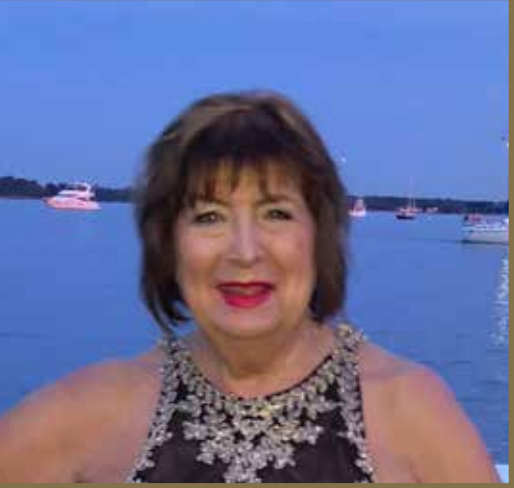










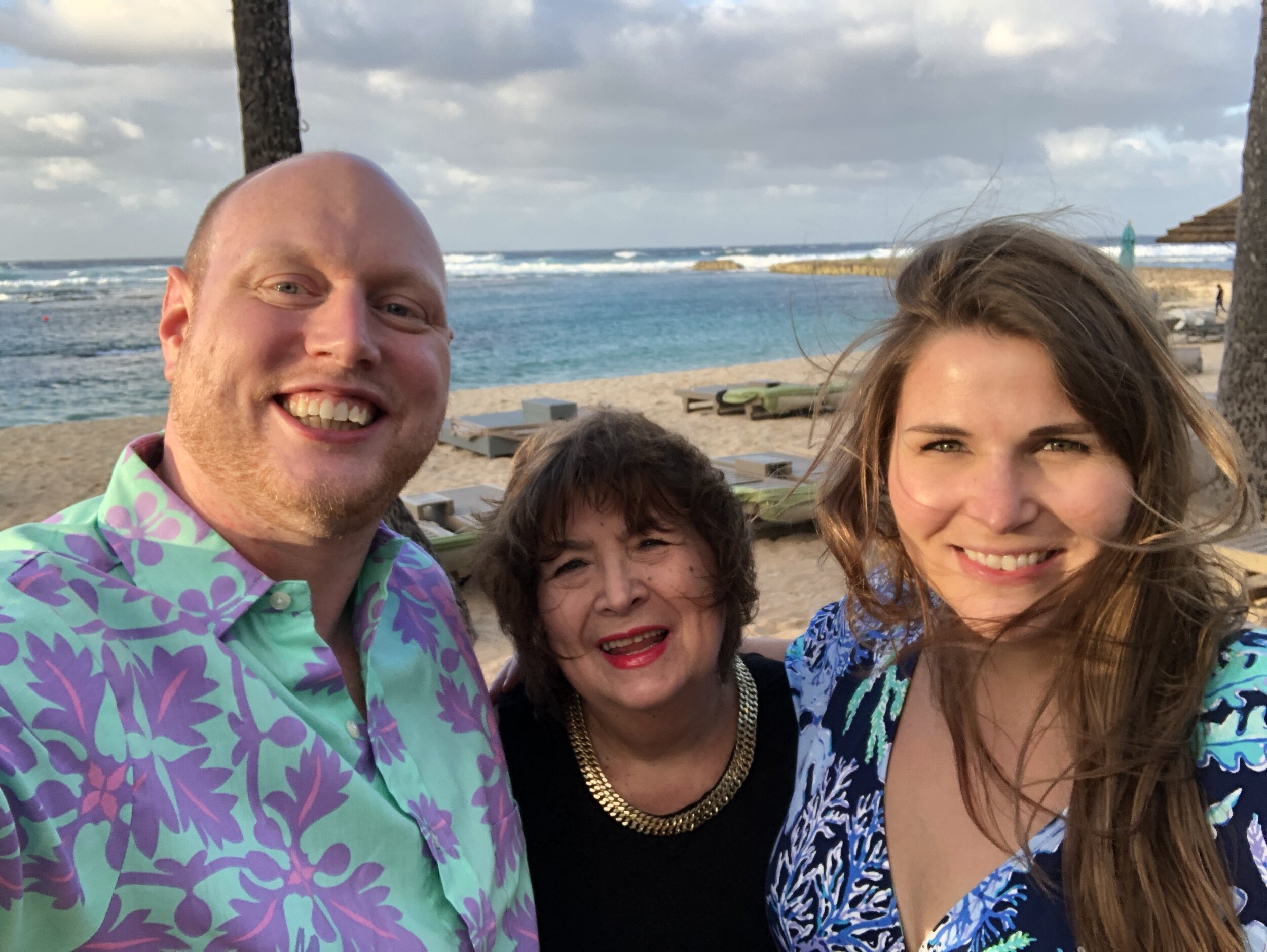
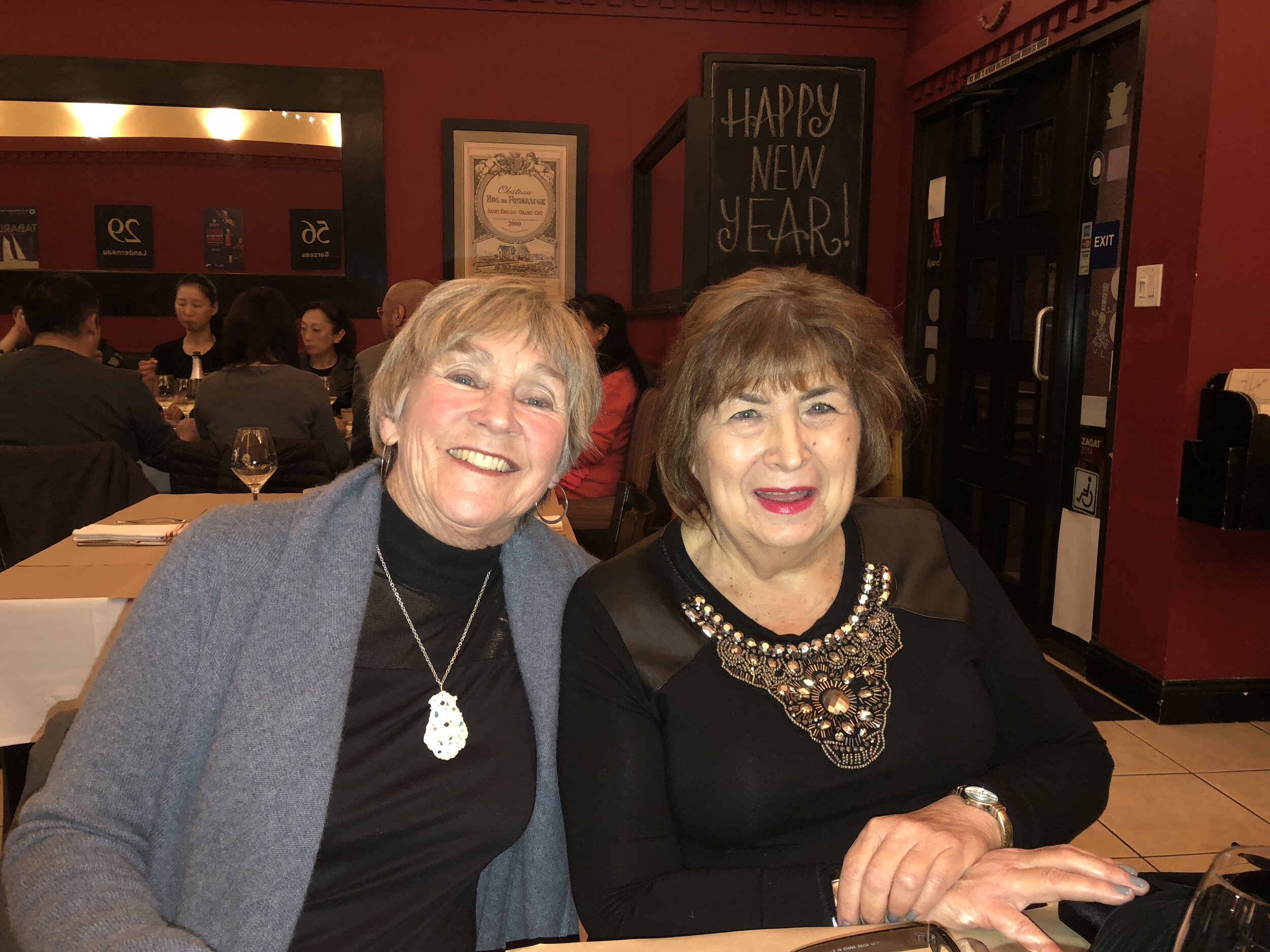
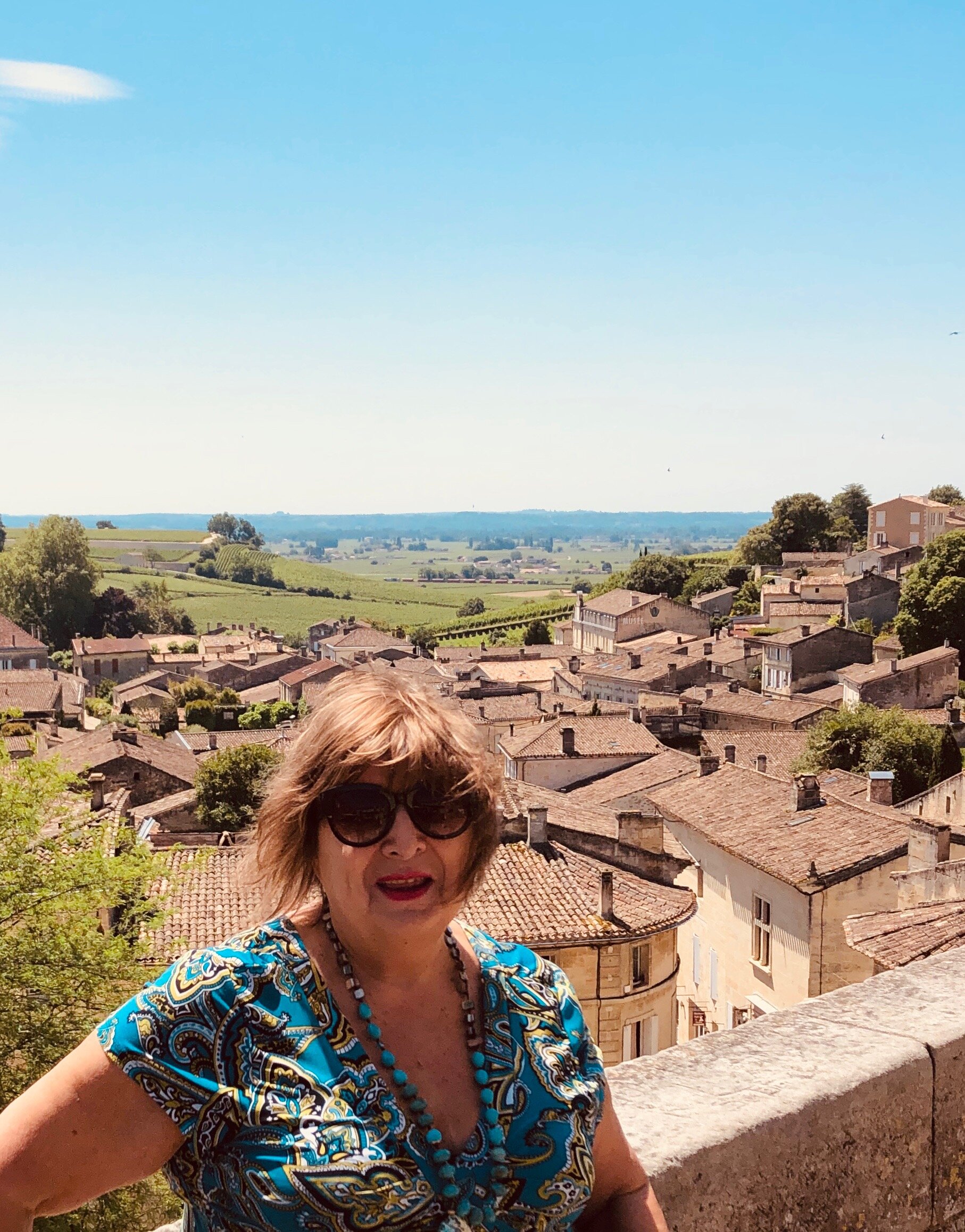



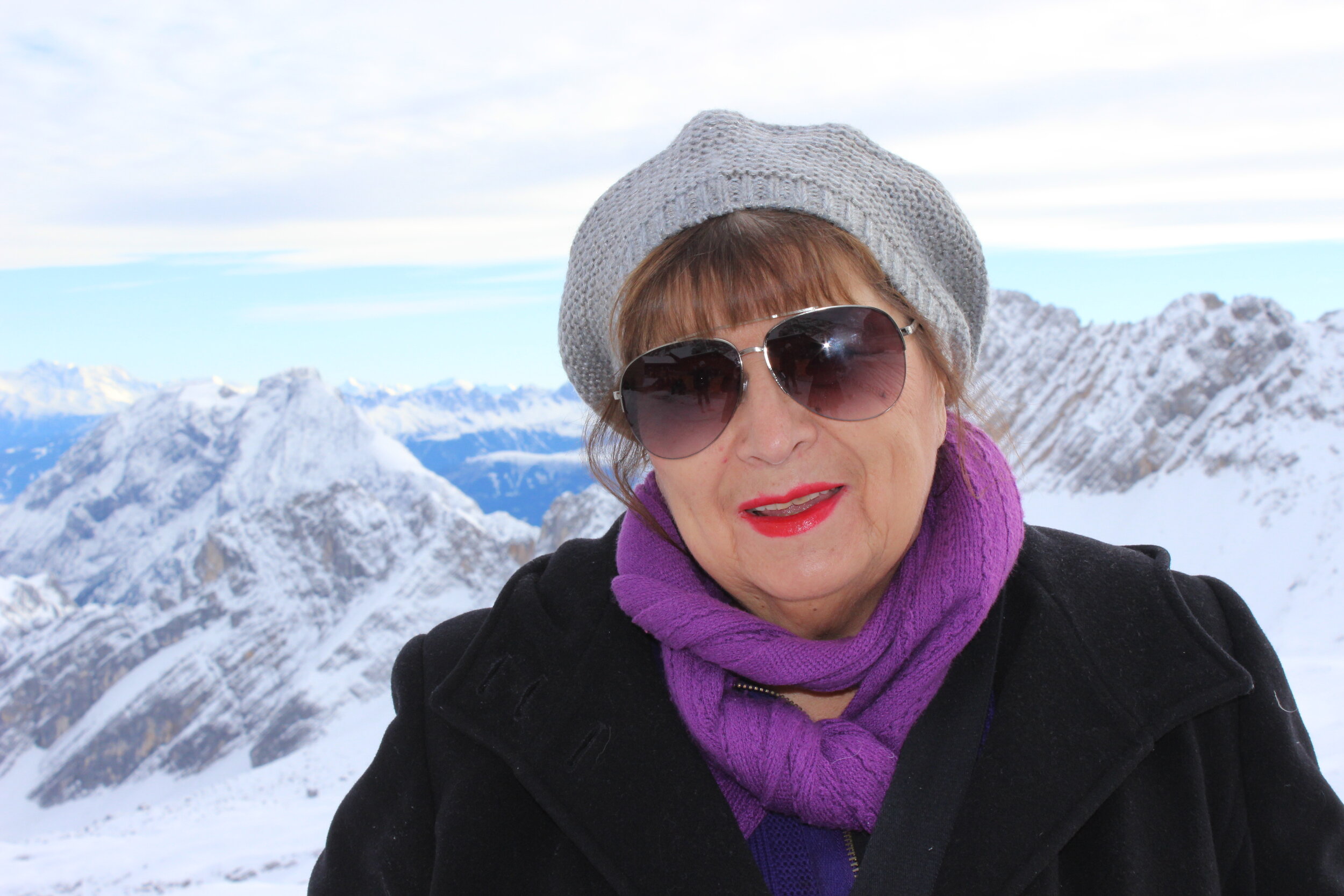
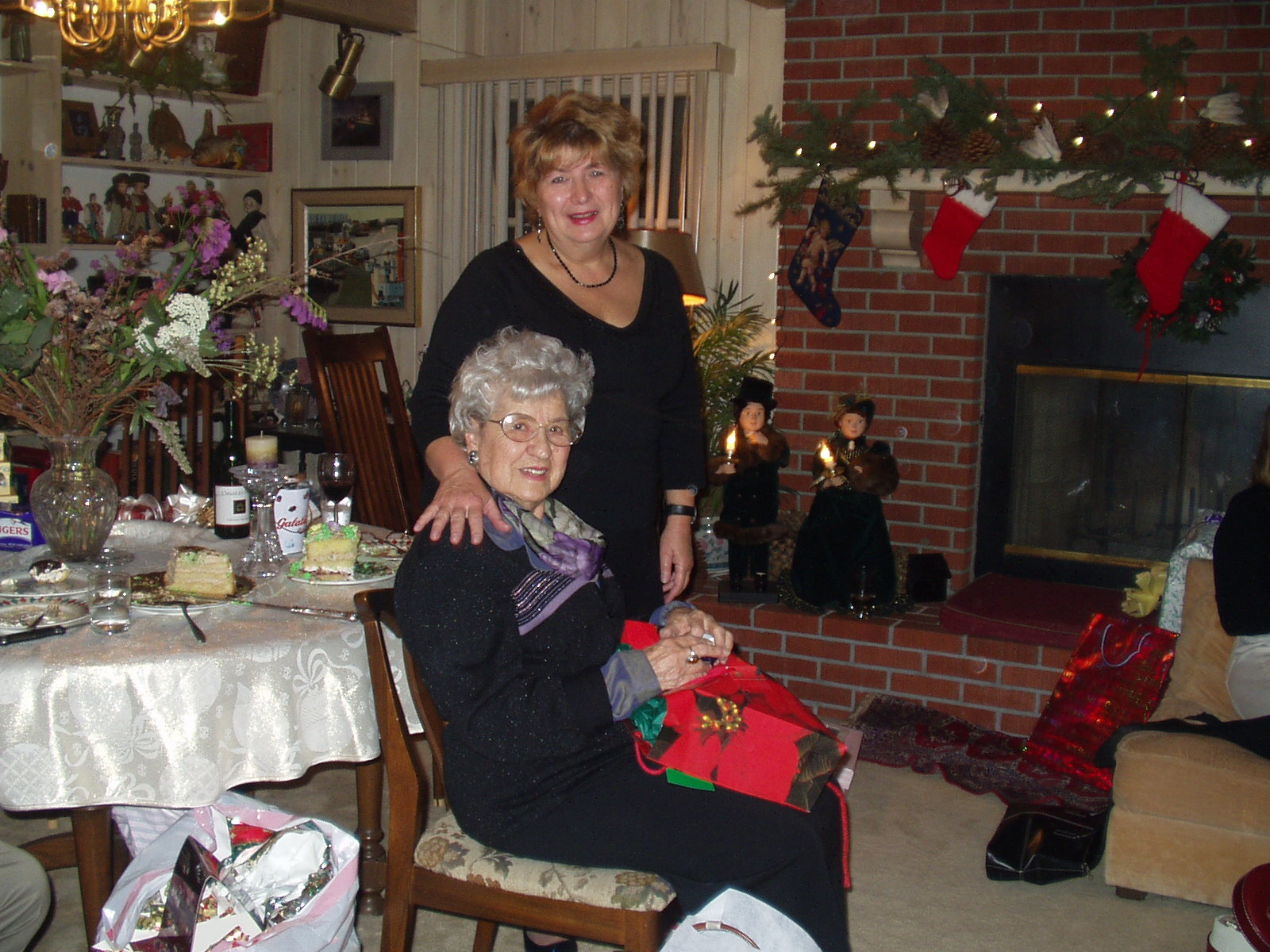







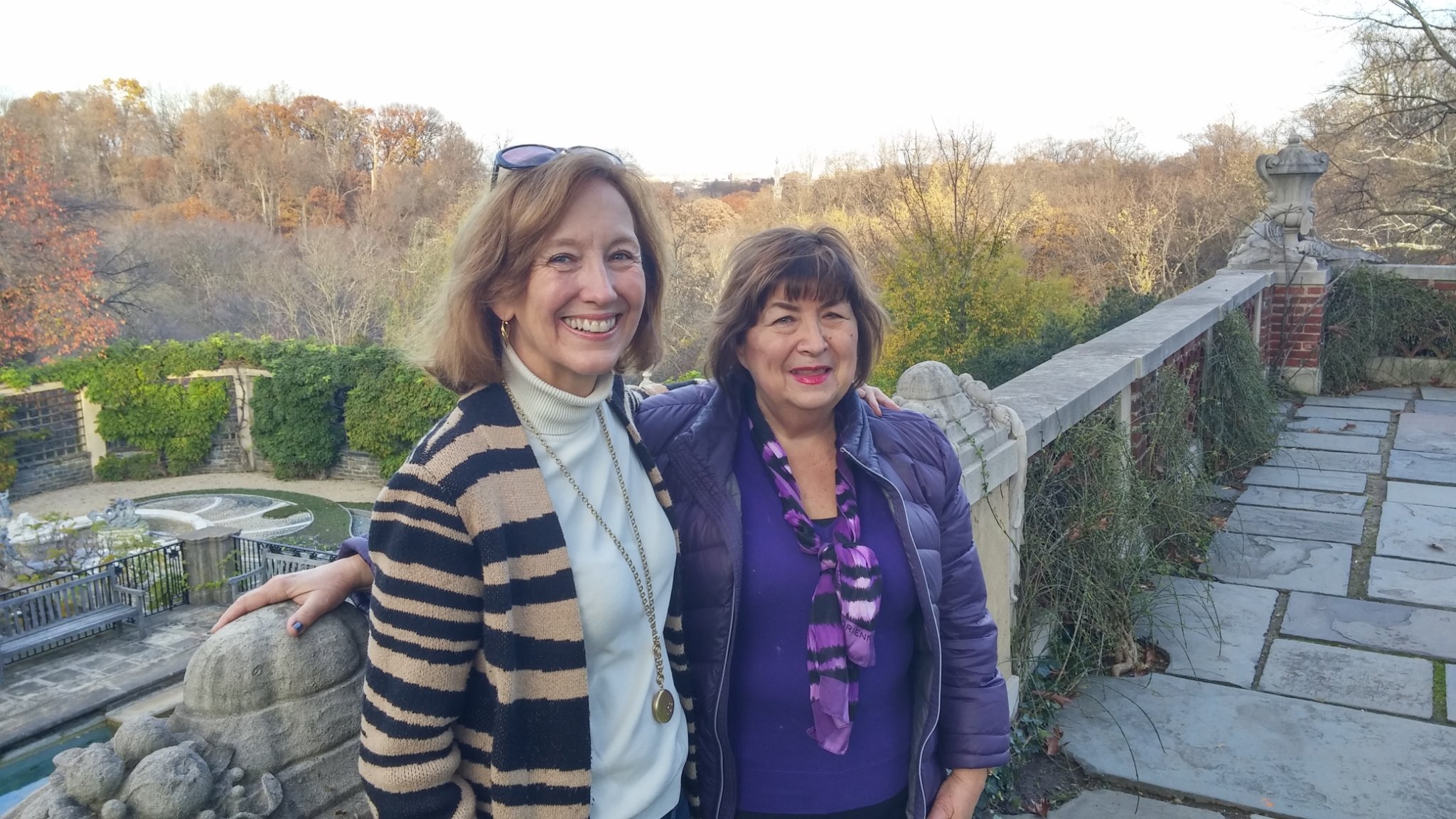


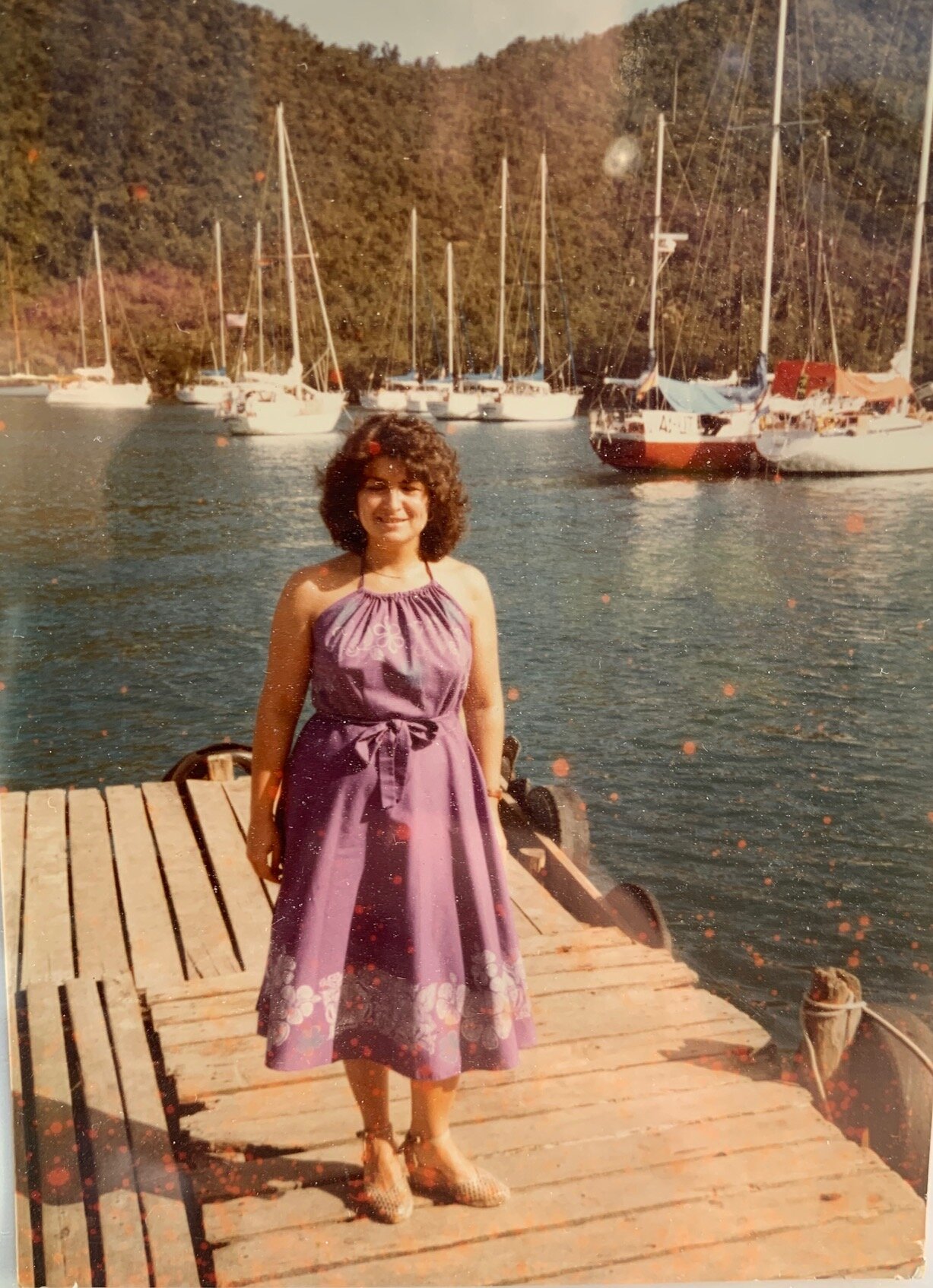




Biliana’s Personal History
On January 1, 1945, Biliana was born in a refugee camp in Gallipoli, Italy to Lubica Kolarevic and Srecko Cicin-Sain. Her family, with older sisters Gordana and Milica, had fled their seaside hometown of Split, Croatia to escape the violence of the war in Yugoslavia. Her father, Srecko, had been a respected lawyer and Lubica, a teacher in what had formerly been Yugoslavia. When the family moved to Rome and settled in Vatican City, Srecko became the Vatican Bibliotecario (The Vatican Librarian) and ultimately had Biliana baptized by Pope Pius XII.
The family’s goal was to emigrate to California, where Srecko’s brother and family lived. However, due to the visa quota system in the US, the family decided to make their way across the Atlantic via the Queen Mary to Buenos Aires, Argentina, one of the few countries that was accepting southern European immigrants. Biliana spent a large part of her childhood in Buenos Aires, garnering many fond memories, childhood friends and a perfect Argentine accent.
In March 1959, the family boarded a Japanese freighter en route to the United States. The family traveled for 40 days through Havana, the Panama Canal, and Panama, finally reaching the Golden Gate Bridge in May 1959. Biliana’s family moved to the Valley and Biliana enrolled at James Monroe High School. During her first day of school, she asked to stand in front of her English class and introduce herself. In her charming accent and with remarkable aplomb, she told her story. She spoke about having been born in Europe and lived in Argentina for 11 years while waiting to get an immigration visa for the US. The room was captivated by her confident, fearless, spirit. During her high school tenure, she was involved in countless activities including student government, and she made many, many friends. With the slogan, “Don’t worry about Mañana, Vote for Biliana!” Biliana was elected student body president – no surprise.
During her tenure at the University of California, Santa Barbara, Biliana founded and served as the Director of UCSB’s Ocean and Coastal Policy Center. She was the catalyst for efforts that addressed conflicts between commercial fishermen and marine mammals, especially the threatened California sea otters. While attending an ocean conference, she would meet the love of her life, Robert Knecht. After a whirlwind romance, the two married in Woods Hole in 1983.
While in Santa Barbara, Biliana and Bob welcomed the birth of their daughter, Vanessa Cicin-Sain Knecht. Biliana, Bob and Vanessa would take their first of many family trips together when Vanessa was just 11 months old, to the South Pacific. In 1989, Biliana and Bob were both offered teaching positions at the University of Delaware’s College of Earth, Ocean and Environment as Professors of Marine Policy. While in Delaware, the family enjoyed suburban life, exploring Delaware’s state parks, horseshoe crab hunting on Cape Henlopen, attending dozens of Coast Days in Lewes and flower markets at Tower Hill School, and made lifelong friends. They also traveled enthusiastically to many parts of the world including: meeting up with Bob’s brother Jerry and Sister-in-law Sue Knecht in Apia, Western Samoa; staying in a treehouse above the rice paddies in Ubud, Bali; snorkeling the Great Barrier Reef off the coast of Cairns; renting a cottage overlooking the cliffs of Devon among many others. During her tenure at the University of Delaware, Biliana mentored many talented graduate students who now carry on the work of integrated coastal management around the world. To many, she was more than a teacher, remaining a mentor and supporting their careers over years and decades.
In 1996, Biliana and Bob took a 6-month sabbatical from the University of Delaware to finish their co-authored textbook on integrated coastal zone management. During this time, the family moved to the Passy neighborhood of Paris where Biliana enjoyed daily walks in the Luxembourg gardens, accompanied Vanessa rollerblading at the Trocadero, had unforgettable meals at Aux Charpentiers and had countless meetings at Les Deux Magots.
When returning to the US and after Bob’s recent cancer diagnosis, the family moved to Washington DC. The family spent many happy years in Washington living at the historic Kennedy Warren building in Cleveland Park until Bob’s passing from colon cancer in 2001. Biliana and Vanessa then moved to the Chevy Chase neighborhood of Northwest DC, where Biliana would build a vibrant community of friends. Biliana and Vanessa would continue many happy years in Washington and shared many milestones: traveling to 55 countries together, living in the same condo building, dancing at Vanessa and Ryan’s wedding, and meeting her grand-daughter, Pippa.
My mother, Biliana Cicin-Sain lived a rich, fulfilled, accomplished and consequential life. She was a visionary, passionate leader admired by many through her work, but also a caring, kind and extraordinarily devoted friend, family member and mother. She was a gifted storyteller with a penchant for building communities around her. She easily converted colleagues to friends and cared deeply and passionately about those around her. She was simply the best mother one could ask for. She was my biggest supporter, best teacher, devoted mentor, and she loved me beyond measure. She leaves a void that will be impossible to fill, but her memory, legacy, and love for life will be passed on through all of us.